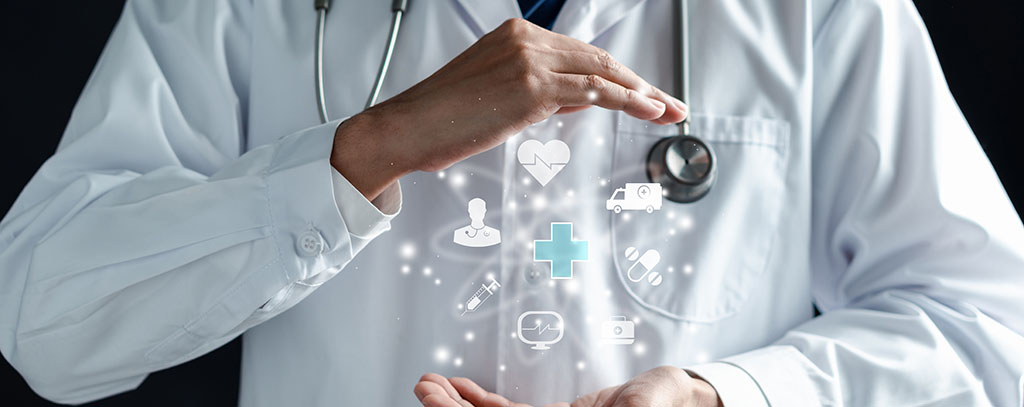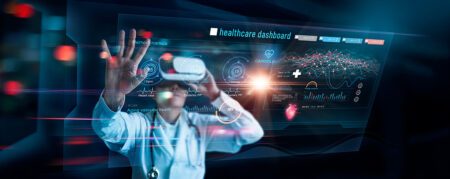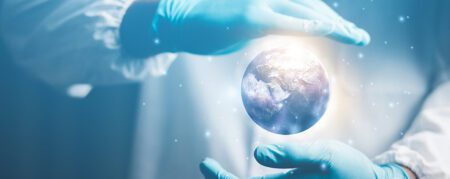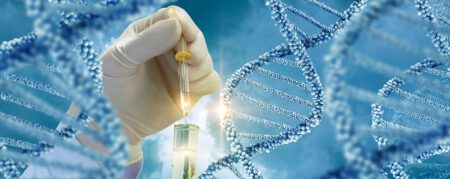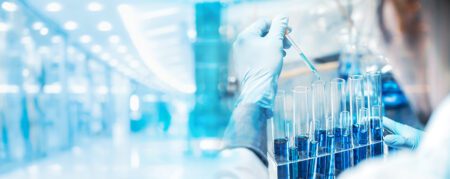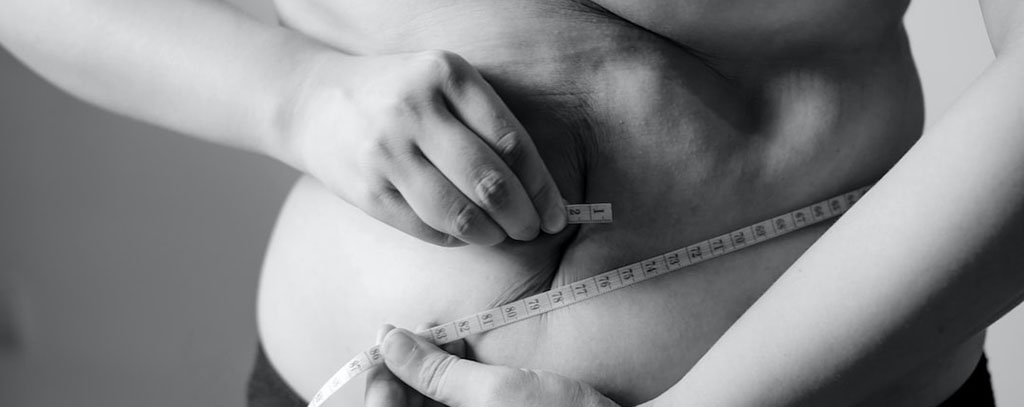


Does Phentermine Show Up on a 10 Panel Drug Test? Get the Facts!
February 17, 2023


How to Read a Saliva Drug Test: A Step-by-Step Guide
February 23, 2023Mouth swab drug tests are a popular choice for companies to use when they need to quickly and accurately test their employees or applicants. But how accurate is the mouth swab drug test? The accuracy of this kind of instant testing can be determined by various components, like the substances it is able to detect and any restrictions that could influence its precision. In this article, we'll explore these questions in depth so you can decide if a mouth swab drug test is right for your company's needs. We'll talk about how accurate onsite type mouth swab drug tests are compared to lab-based tests and which drugs it can detect. Additionally, we will discuss any potential limitations that could impact the accuracy of the results from a mouth swab drug test, as well as some alternatives available for those looking for an alternative option.
What is a Mouth Swab Drug Test?
A mouth swab drug test is a type of onsite drug testing that uses a saliva sample to detect the presence of drugs in an individual’s system. It is an efficient and unobtrusive approach to examine for the consumption of prohibited substances. A swab is taken from the inside of a person's cheek to acquire saliva which can then be tested for certain drugs, including marijuana, cocaine, amphetamines, opiates and PCP.
The results are typically available within minutes after collection. This makes it ideal for employers who need quick results or those conducting random drug tests at their workplace. Furthermore, this testing technique offers no danger of adulteration or tainting, thus permitting its utilization in any environment without dread of distorted outcomes because of manipulation or other elements.
Mouth swab drug tests have become increasingly popular due to their convenience and accuracy compared to traditional urine tests. They are also less intrusive than blood tests because they do not require needles or venipuncture procedures. Furthermore, they provide reliable results even if someone has recently ingested drugs; whereas urine samples may not show positive readings until several hours later depending on how quickly the body metabolizes them.
How accurate is the mouth swab drug test? Generally, these tests are thought to be extremely precise when administered correctly by certified professionals in line with regulations and standards put forward by organisations such as SAMHSA (Substance Abuse Mental Health Services Administration). Studies have indicated that erroneous positives are uncommon, transpiring in fewer than 1% of tests; nevertheless, false negatives can occur around 5%.
Mouth swab tests can detect a variety of illicit substances, such as marijuana/THC metabolites; cocaine/crack; heroin/opiates; methamphetamine/amphetamines; PCP (phencyclidine); barbiturates; benzodiazepines like Valium and Xanax; methadone & buprenorphine (suboxone); alcohol metabolites including ethyl glucuronide & ethyl sulfate, plus certain prescription drugs in the past 72 hours like oxy
Yes, there are certain limitations to the accuracy of mouth swab drug tests. Improper collection techniques can lead to contamination or dilution issues which could result in incorrect readings either higher or lower than actual levels present in the sample being tested. Additionally, extreme temperatures during storage may also cause inaccuracies; thus it is essential that specimens remain at room temperature.
Mouth swab drug tests are an expedient and dependable method to spot recent substance use, yet it is critical to comprehend their precision before settling on decisions in view of the outcomes. Now let's take a closer look at how accurate the mouth swab drug test really is.
How Accurate is the Mouth Swab Drug Test?
Accuracy levels lie in the 97-99% range, rendering it a dependable selection among accessible choices. This type of test is often used by employers, law enforcement, and other organizations that need quick results with minimal disruption or inconvenience.
The mouth swab drug test works by collecting saliva samples from the inside of a person’s cheek using a special collection device. The sample is then tested for traces of drugs in the system such as marijuana, cocaine, opiates, amphetamines, benzodiazepines, barbiturates and more. Results can be obtained within minutes after collection has been completed.
Accuracy depends on several factors including how long ago the substance was consumed and how much was taken at once. Generally speaking though, this type of test is considered very accurate when it comes to detecting recent use (within 24-48 hours). It can also detect low levels which makes it ideal for random or post-accident testing scenarios where accuracy is key.
One limitation to consider when using mouth swab drug tests is that they cannot detect alcohol consumption due to its short half-life in saliva samples compared to other substances like cannabis or opioids which have longer detection windows. Additionally, some prescription medications may interfere with results so if you suspect someone has taken medication recently it is important to consult their doctor before administering any kind of drug test in order to ensure there are no false positives or negatives caused by interference from the medications being taken concurrently with illicit substances tested for presence in saliva specimens collected via oral fluid sampling devices such as those used during mouth swab drug tests.
Mouth swab drug tests are an effective and precise way of recognizing substances in the body, yet it is critical to comprehend which drugs they can detect prior to settling on whether this kind of test is suitable for you. Let's take a look at what drugs can be detected by a mouth swab drug test.
What Drugs Can be Detected by a Mouth Swab Drug Test?
These tests use saliva samples collected from inside the mouth, which can then be tested for various substances. Mouth swab tests can uncover the presence of a range of substances, including cannabis, cocaine, amphetamines, opioids and benzodiazepines.
The detection window for each drug varies depending on the type and amount used. Marijuana's detection window is up to a day, while cocaine's is shorter at half that; amphetamines can be detected for three days, opiates up to four and benzodiazepines even longer at five. Amphetamines, detectable for up to three days post-consumption, have a longer detection window than cocaine and marijuana; opiates can remain traceable for as long as four days. Benzodiazepines have one of the longest windows with up to 120 hours or 5 days after last usage being detectable through this method.
It is essential to note that these times may fluctuate depending on factors such as age, body weight, metabolism rate and other variables; thus it is recommended for any organization administering drug testing using this method to consult with their laboratory partner before testing individuals in order guarantee precise results are acquired within reasonable time frames.
In addition to the five substances commonly screened for, other compounds such as barbs (sleeping pills), PCP (angel dust) and certain inhalants like nitrous oxide (laughing gas) can be identified via a mouth swab test. It is worth noting that some laboratories offer extended panels which allow them to detect additional substances not included in the standard panel; for example, synthetic cannabinoids (K2/Spice) or prescription medications like oxycodone or hydrocodone. This may be requested by employers who wish to screen for those specific compounds during their pre-employment screenings or random workplace drug testing programs.
Mouth swab testing can identify multiple substances, including cannabis, cocaine, and opioids. Still, grasping the restrictions of this kind of test is critical for guaranteeing precise outcomes. Let's now explore what these limitations are and how they might affect the accuracy of mouth swab drug tests.
Are There Any Limitations to the Accuracy of Mouth Swab Drug Tests?
Though precise, this testing approach is not without its constraints; thus, it's prudent to bear in mind these restrictions when opting for a mouth swab drug test.
One limitation is that if an individual has recently consumed food or beverages containing alcohol or other drugs, this could affect the accuracy of the test results. This is due to the possibility of traces of alcohol and drugs persisting in saliva for up to a day after intake, thus potentially skewing mouth swab drug test results.
Another potential issue is that, if recently taken medications such as antibiotics or antihistamines are present in the individual's system, this could skew the results of a mouth swab drug test. These medications may interact with any traces of drugs present in saliva and cause inaccurate readings on a mouth swab drug test.
In addition, mouth swab drug tests are not able to detect all types of drugs due to their smaller detection window; only those substances present within 12-24 hours prior will show up on these tests. Therefore, it is important to consider other forms of testing such as urine or blood tests a longer detection window is needed.
Mouth swab drug tests can be a useful tool for employers, but it's important to understand the potential limitations and explore other options that may provide more accurate results. Next, let's look at some alternatives to mouth swab drug tests that companies should consider.
What Are Some Alternatives to Mouth Swab Drug Tests?
Though these tests may appear to be an advantageous selection, they could not necessarily suit all scenarios. There are several alternatives to mouth swab drug tests that can provide more reliable results or longer detection windows.
Urine Tests:
Urine testing is one of the most common alternatives to mouth swab drug testing. Urine tests typically offer a longer detection window than mouth swabs and can detect drugs used up to two weeks prior to testing. However, urine samples may be adulterated or diluted which could lead to false negative results if not properly monitored by trained personnel during collection.
Hair follicle testing is another alternative that offers a much longer detection window than either urine or saliva tests, with the potential to detect drugs used up to 90 days prior. This method of drug testing requires cutting off a portion of hair from the scalp, making it less susceptible to sample tampering when compared with liquid samples such as those collected for urine and saliva tests. Although more expensive than other methods due its complexity and labor-intensive nature, hair follicle testing may be beneficial in certain situations where supervision isn't available during specimen collection processes like at home or in non-clinical settings.
Sweat Patches:
Sweat patches are adhesive patches placed on an individual’s skin which absorb sweat over time allowing them to collect trace amounts of certain substances including drugs from within their system over long periods (upwards of 14 days). These patches must remain sealed until analysis so there is little chance for sample contamination but this method does require close monitoring by trained personnel throughout the entire process making it impractical for many applications outside clinical settings
Blood testing provides more accurate and specific outcomes than other forms of drug screening, yet it has its own drawbacks. However, blood sampling has several drawbacks such as invasiveness, high costs associated with laboratory processing fees, short detection windows (typically only 1-2 days), and potential risks related to infection transmission through needle sticks; making it unsuitable for many cases where rapid turnaround times are not necessary or desired.
Conclusion
They are easy to administer, require minimal training, and can be used onsite with results available quickly. While they may not detect all drugs like a lab test would, mouth swab drug tests provide an accurate result for many common substances. For companies looking for an efficient and cost-effective way to screen their employees or applicants for drug use, the accuracy of mouth swab drug testing makes it an ideal choice.
It's time to take control of drug testing with accurate and reliable results. Halux Diagnostic provides a mouth swab drug test that is easy to use, cost-effective, and highly accurate. With our advanced technology and innovative solutions, you can trust in the accuracy of your results so that you can make informed decisions quickly and confidently. Get started today with Halux Diagnostic for an efficient way to know the truth about drugs!

